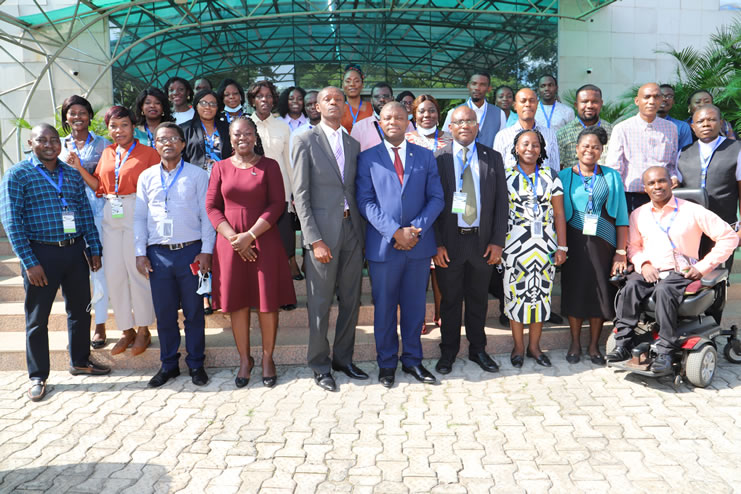The Vice-Chancellor, Covenant University, Professor Abiodun H. Adebayo, has urged facilitators at at a five-day training workshop on cancer genomics to help equip participants with relevant skills on the next-generation sequencing methods.
The 1st African Translational Cancer Genomics Training Workshop, holding from May 24-28, 2021, at the auditorium of the Covenant University Centre for Research, Innovation and Discovery (CUCRID), was being organised by the Covenant Applied Informatics and Communication Africa Centre of Excellence (CApIC-ACE) in conjunction with other stakeholders in cancer genomics research, notably the National Cancer Institute (NCI) and the University of Southern California (USC).
While making his remarks at the opening ceremony of the workshop held on Monday, May 24, 2021, Professor Adebayo stated that between 30 and 50% of cancers could currently be prevented by avoiding risk factors and implementing existing evidence-based prevention strategies.
According to him, the field of cancer genomics had been advancing rapidly, opening up a wealth of possibilities for translational applications, while growing knowledge of human genetics was changing the way physicians and researchers approached the diagnosis of cancer risk and treatment of various types of cancer.
“With the accrual of a massive amount of data through the genomic profiling of human cancers, a central challenge remains to systematically determine the functional importance of variants in influencing disease risk, prognosis, or therapeutic potential. This development has given rise to the need for African cancer clinicians and scientists to master the next-generation sequencing method,” said the Vice-Chancellor.
He emphasized that at the end of the workshop, the facilitators were expected to have equipped participants with relevant skills on the next-generation sequencing methods.
Earlier in his welcome speech, the Director, CUCRID, and Deputy Director (Health Thematic Area) CApIC-ACE, Professor Emeka Iweala, in his welcome remarks, said CApIC-ACE was established based on the urgent need to train a critical mass of African scientists with the necessary bioinformatics, molecular biology, cancer genomics, and information and communication engineering knowledge and skills to drive and sustain impactful research to reduce the burden of breast and prostate cancer and eradicate malaria.
He noted that CApIC-ACE sought to develop new diagnosis and treatment for prostate and breast cancer, advance the development of new treatment and control for malaria, and to evolve a Federated Genomic (FEDGEN) cloud infrastructure towards an informatics-based genomic research in Africa and the development of personalized medicine.
While stating that the workshop was one of the strategies for CApIC-ACEA to achieve her aim on capacity building, Professor Iweala was hopeful that participants would enhance their understanding of basic cancer genomics techniques at the end of the workshop.
The Principal Investigator, Dr Solomon Rotimi, speaking on the overview of the workshop, said that though cancer was caused by many factors, which genetic only representing a minor part, however, when it developed, unlike all other diseases, it was 100% a disease of the genome.
“Any treatment measure that does put tutor genomics into account, is a best intelligent guess work. Hence, the number of survivor is increasing in the USA and Europe. In fact, the new anticancer therapies that are now being approved by FDA are tissue agnostic treatments. Even, response to radiation is influenced by tumor genomics,” he stated.
The principal investigator said that it was against the background of the lack of data and capacity in Africa that the NCI CGH was approached for funding to train resident doctors and clinical trainees in cancer genomics. He added that the resource persons from the USC included Dr John Carpten and Dr Bodour Salhia. There were also Dr Emmanuel Taylor (NCI), Dr Michael Idowu (VCU) and a team from Yemaachi Biotech Limited, Ghana. Participants at the workshop were from all over Nigeria including the Benin Republic, Sierra Leone, Liberia and Cameroon.
Dr Rotimi expressed appreciation to the Covenant University Chancellor, Dr David O. Oyedepo, the University Management, the USC team, and all his colleagues who had worked with him to make the workshop a reality.

